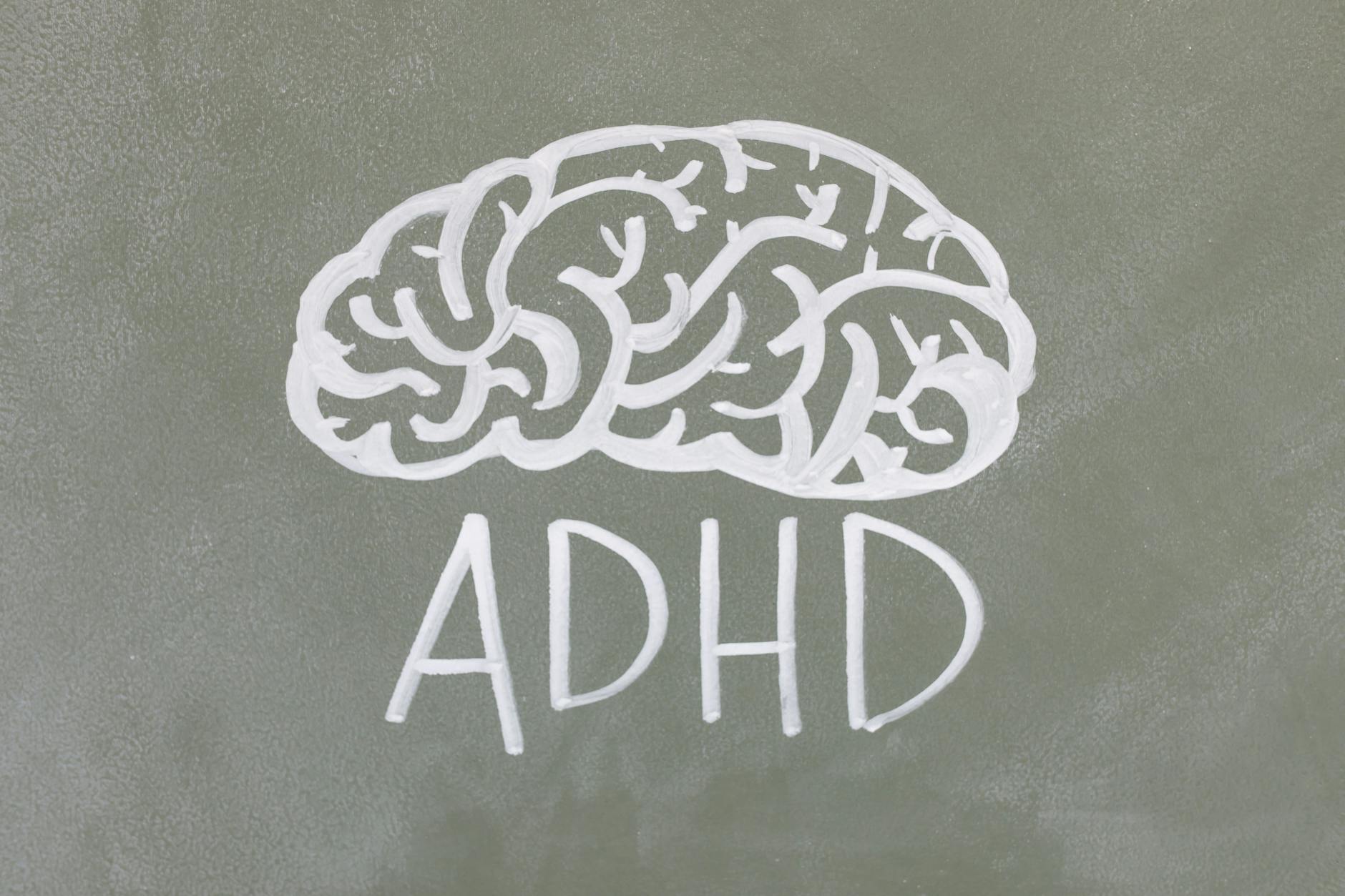Signs You Might Have ADHD as an Adult: What You Need to Know
Introduction: Are You Struggling with ADHD Without Knowing It?
For years, I found myself struggling with simple tasks like paying attention during meetings, staying organized, or following through on projects. I’d make plans, get excited, and then forget or lose interest halfway through.
I thought I was just lazy or undisciplined. But when I finally learned about ADHD in adults, everything clicked. Suddenly, it all made sense — my struggles were linked to a condition I didn’t even know could affect adults.
If you’ve ever felt the same way, you’re not alone. ADHD (Attention-Deficit/Hyperactivity Disorder) isn’t just something kids have. In fact, it’s estimated that around 4-5% of adults live with ADHD, often without realizing it.
In this article, we’ll explore the common signs of ADHD in adults, how it can affect your daily life, and what steps you can take if you suspect you have it.
What Is ADHD in Adults?
ADHD is a neurodevelopmental disorder that impacts your ability to focus, stay organized, and regulate your emotions. While it’s often diagnosed in childhood, many people don’t realize they have it until adulthood. ADHD can show up in various ways, from chronic disorganization to difficulty with time management and impulsive behavior.
8 Signs You Might Have ADHD as an Adult
1. Chronic Disorganization
If you constantly struggle with keeping things in order — whether it’s your workspace, your home, or your schedule — you might be dealing with ADHD. People with ADHD often have difficulty organizing tasks and maintaining structure in their lives, leading to clutter and chaos.
Personal experience: I used to lose track of my keys, forget important deadlines, and misplace paperwork all the time. I felt like my brain was scattered and nothing was ever in its place.
2. Difficulty Staying Focused
Have you ever found yourself zoning out during conversations, meetings, or tasks you’re trying to complete? If your mind constantly drifts, and you struggle to stay on topic or follow through on tasks, it could be a sign of ADHD.
Real story: I would start a project with great enthusiasm, only to lose interest halfway through. I couldn’t concentrate on one thing for too long, and it was frustrating not being able to finish what I started.
3. Impulsiveness
Adults with ADHD often struggle with impulsivity — acting without thinking. This might show up as making hasty decisions, interrupting others in conversations, or even making purchases you didn’t plan for.
Example: I’d often agree to things without thinking, whether it was committing to a new project or saying “yes” to plans that didn’t fit into my schedule. Over time, these impulsive actions added unnecessary stress to my life.
4. Trouble Managing Time
If time management is a constant struggle, ADHD could be the reason. Adults with ADHD often find it difficult to stick to deadlines, allocate time efficiently, or plan tasks in a way that keeps everything moving smoothly.
Real tip: I would always underestimate how long tasks would take, leading to last-minute scrambling. Setting timers or using a planner helped me, but the struggle to manage time never fully went away.
5. Restlessness and Difficulty Relaxing
ADHD isn’t just about a lack of focus. Many adults with ADHD experience a feeling of restlessness or an inability to relax, even when they’re not actively doing something.
Example: I found it hard to just sit and watch a movie without feeling the urge to get up and do something. The constant restlessness made it difficult for me to unwind, even in my downtime.
6. Emotional Instability
Emotional regulation is another challenge for adults with ADHD. You might experience mood swings, irritability, or frustration more intensely than others. These emotional fluctuations can affect your relationships and overall well-being.
Real story: I would get upset over small things — like a minor mistake at work — and struggle to calm down. It felt like my emotions were always a bit out of control, especially when things didn’t go according to plan.
7. Forgetfulness
It’s not uncommon for adults with ADHD to forget important tasks, appointments, or even daily activities. If you regularly miss deadlines, forget where you placed things, or need constant reminders to stay on track, this could be a sign of ADHD.
Tip: Keeping a detailed calendar and setting alarms helped me stay organized, but it was still a constant battle to keep everything in my mind at once.
8. Difficulty Following Through on Tasks
Whether it’s a work project, a hobby, or household chores, many adults with ADHD struggle to follow through on tasks they’ve started. The excitement of beginning something new might wear off quickly, and you’re left with an unfinished project.
Example: I’d often start a new hobby or project, only to abandon it after a few weeks. I loved starting new things, but finishing them? That was another story.
What to Do if You Think You Have ADHD
If any of these signs sound familiar, you’re not alone. The first step is to consult with a healthcare provider. A professional can help you get a proper diagnosis and develop a treatment plan that works for you.
Treatment for ADHD in adults often involves a combination of strategies, such as:
- Therapy (Cognitive Behavioral Therapy is often recommended)
- Medication (such as stimulants or non-stimulants)
- Lifestyle changes (improving sleep, diet, and exercise)
- Time management tools (planners, alarms, reminders)
Conclusion: Embrace Your Journey to Better Focus
Living with ADHD as an adult can be challenging, but understanding the signs and seeking help can make a huge difference. With the right tools and support, you can learn to manage ADHD and live a fulfilling, productive life.
You don’t have to live with the constant chaos, forgetfulness, or frustration. By acknowledging the signs of ADHD, you’re already taking the first step toward regaining control.
If you think ADHD might be affecting your life, take that next step — talk to a professional, get a diagnosis, and start finding strategies that work for you. The right support can help you tap into your strengths and reach your full potential.
Quick Summary:
| Sign | Description |
|---|---|
| Chronic Disorganization | Struggling with keeping things in order and staying organized |
| Difficulty Staying Focused | Zoning out, losing track of tasks or conversations |
| Impulsiveness | Making hasty decisions, interrupting others, or acting without thinking |
| Trouble Managing Time | Difficulty planning tasks, missing deadlines, and estimating time |
| Restlessness | Feeling constantly on edge and unable to relax |
| Emotional Instability | Experiencing intense mood swings or frustration |
| Forgetfulness | Regularly forgetting tasks, appointments, or important details |
| Difficulty Following Through | Starting projects but struggling to complete them |







